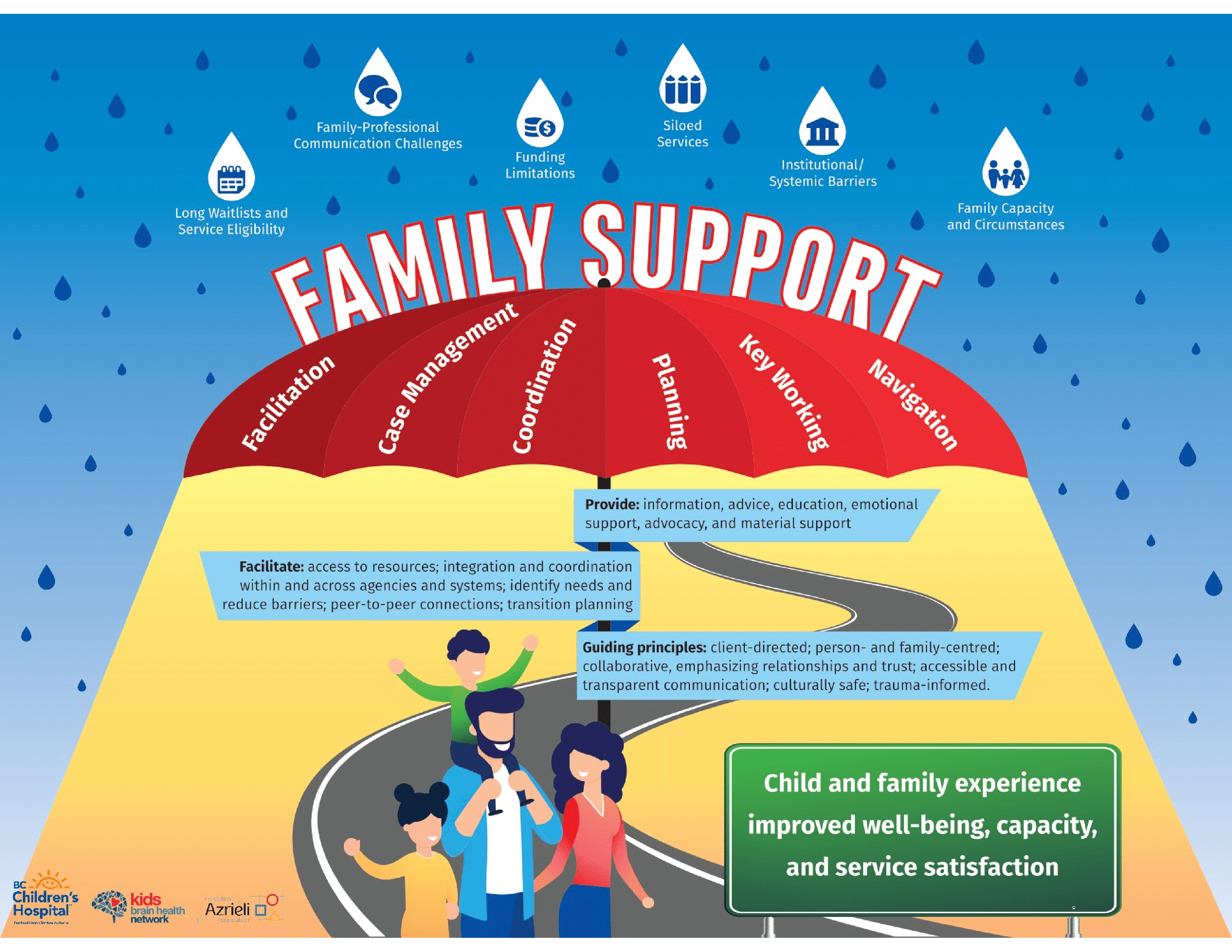How Families of Children with Neurodevelopmental Disabilities Describe “Navigational Services”
Families of children and youth with neurodevelopmental disabilities often struggle to connect to fragmented services and supports. We are conducting a study to gain a better understanding of how families perceive services that connect them to community-based services, supports, and resources. In other words, we are interested in the concept of ‘navigation’ and related activities.
Any family member who engages, or hopes to engage, with navigation or navigation-related services for their child(ren) with neurodevelopmental disabilities are invited to participate. Examples of such navigation might be:
- Connecting to assessment and developmental supports in the early years;
- Navigating transitions into and out of school;
- Navigation through healthcare settings, and connecting to appropriate healthcare providers;
- Obtaining mental health support;
- Finding peer supports
Participants to complete an online survey that will take 10-15 minutes. If you are interested in participating in this study, please click on this link to access the survey. If you have any further questions, please contact: emily.gardiner@cw.bc.ca.
Navigation terminology – Scoping Review
There is significant confusion around the terminology used to describe the work of connecting families to services, and many stakeholders have shared with us that this has been a roadblock to advancing their work. In order to get a sense of what has been published in the area of ‘navigation’, specifically as related to children with disabilities, we conducted a scoping review of the literature examining: What terminology and what descriptions have been provided in the literature pertaining to navigation, and what related activities are there aimed at connecting children with disabilities and their families to community-based supports and services?
Navigation Provider Survey
We also reached out to those who actually work with families in navigation-related roles, to hear from them about their work and what they call it. 174 participants from around British Columbia completed a brief, online survey in which we asked them to describe and share their reflections on the scope of navigational work, and what it is or should be termed.
Summit Social Network Analysis
Currently in British Columbia, there are many organizations and groups (i.e., “entities”) through which families of children and youth with disabilities seek services, supports, and resources within their communities. We have heard from various stakeholders that these entities are not well-connected and are often unaware of each other. As part of this research, registered attendees of the BC Summit on Navigation for Children and Youth with Neurodevelopmental Differences, Disabilities, and Special Needs are being asked to complete three brief surveys (pre- and post-Summit, and a 6-month follow-up) in order to help us better understand the nature and extent of existing connections, as well as the impact attendance at the BC Navigation Summit had on these relationships.
What Have We Learned About "Navigation"?
Read our Learning from the Research information sheet.
